 Many recycling associations are preparing for their biggest gatherings of the year, and three group leaders recently explained how China-related market disruptions will be tackled at their events.
Many recycling associations are preparing for their biggest gatherings of the year, and three group leaders recently explained how China-related market disruptions will be tackled at their events.

 Many recycling associations are preparing for their biggest gatherings of the year, and three group leaders recently explained how China-related market disruptions will be tackled at their events.
Many recycling associations are preparing for their biggest gatherings of the year, and three group leaders recently explained how China-related market disruptions will be tackled at their events.
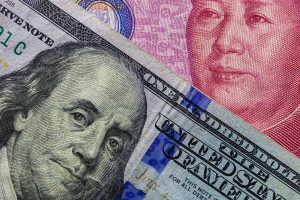 Trade tensions between the U.S. and China have come closer to directly impacting the plastics recycling industry.
Trade tensions between the U.S. and China have come closer to directly impacting the plastics recycling industry.

An initiative that has been the source of industry debate over recovery of hard-to-recycle plastic packaging is awarding $100,000 in grants to expand to more communities.

Keefe Harrison, CEO of The Recycling Partnership, at the 2016 Resource Recycling Conference.
The Recycling Partnership now has nearly 40 industry entities behind it. That raises an interesting question: How does one organization balance the needs of so many corporate backers?
 Researchers will use compatibilizers to determine what kind of properties they can achieve when recycling multi-material flexible plastics from hospitals. Their work will help determine recycling options for a substantial portion of the health care plastics waste stream.
Researchers will use compatibilizers to determine what kind of properties they can achieve when recycling multi-material flexible plastics from hospitals. Their work will help determine recycling options for a substantial portion of the health care plastics waste stream.
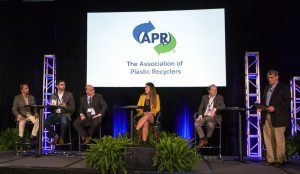 A robotic sorting system, PET packaging breakthrough and melt filter advancement took the limelight in this year’s Plastics Recycling Showcase.
A robotic sorting system, PET packaging breakthrough and melt filter advancement took the limelight in this year’s Plastics Recycling Showcase.
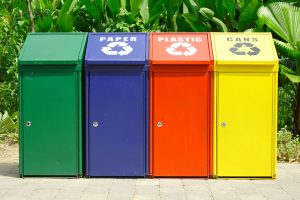 Keep America Beautiful, which runs America Recycles Day and other initiatives, is closing its Washington, D.C. office and consolidating staff in Connecticut. Two leaders from the organization’s recycling arm are exiting as part of the shift.
Keep America Beautiful, which runs America Recycles Day and other initiatives, is closing its Washington, D.C. office and consolidating staff in Connecticut. Two leaders from the organization’s recycling arm are exiting as part of the shift.
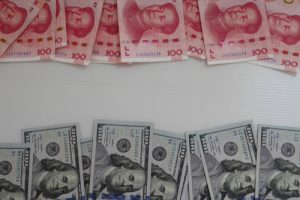 Chinese recycling executives see a promising outlook for Asian companies looking to invest in the U.S. as a result of China’s import restrictions.
Chinese recycling executives see a promising outlook for Asian companies looking to invest in the U.S. as a result of China’s import restrictions.
 The Association of Plastic Recyclers will explore high-interest topics during its 2018 webinars, including California’s packaging regulations, a project to pinpoint plastics that fall through the cracks, sustainable materials management’s relationship to recycling and more.
The Association of Plastic Recyclers will explore high-interest topics during its 2018 webinars, including California’s packaging regulations, a project to pinpoint plastics that fall through the cracks, sustainable materials management’s relationship to recycling and more.
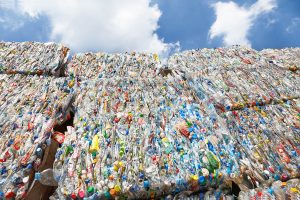 With China having recently shaken up export possibilities, industry leaders in the U.S. have amplified their calls for more domestic markets for recyclables. Two upcoming events aim to accelerate that process.
With China having recently shaken up export possibilities, industry leaders in the U.S. have amplified their calls for more domestic markets for recyclables. Two upcoming events aim to accelerate that process.
